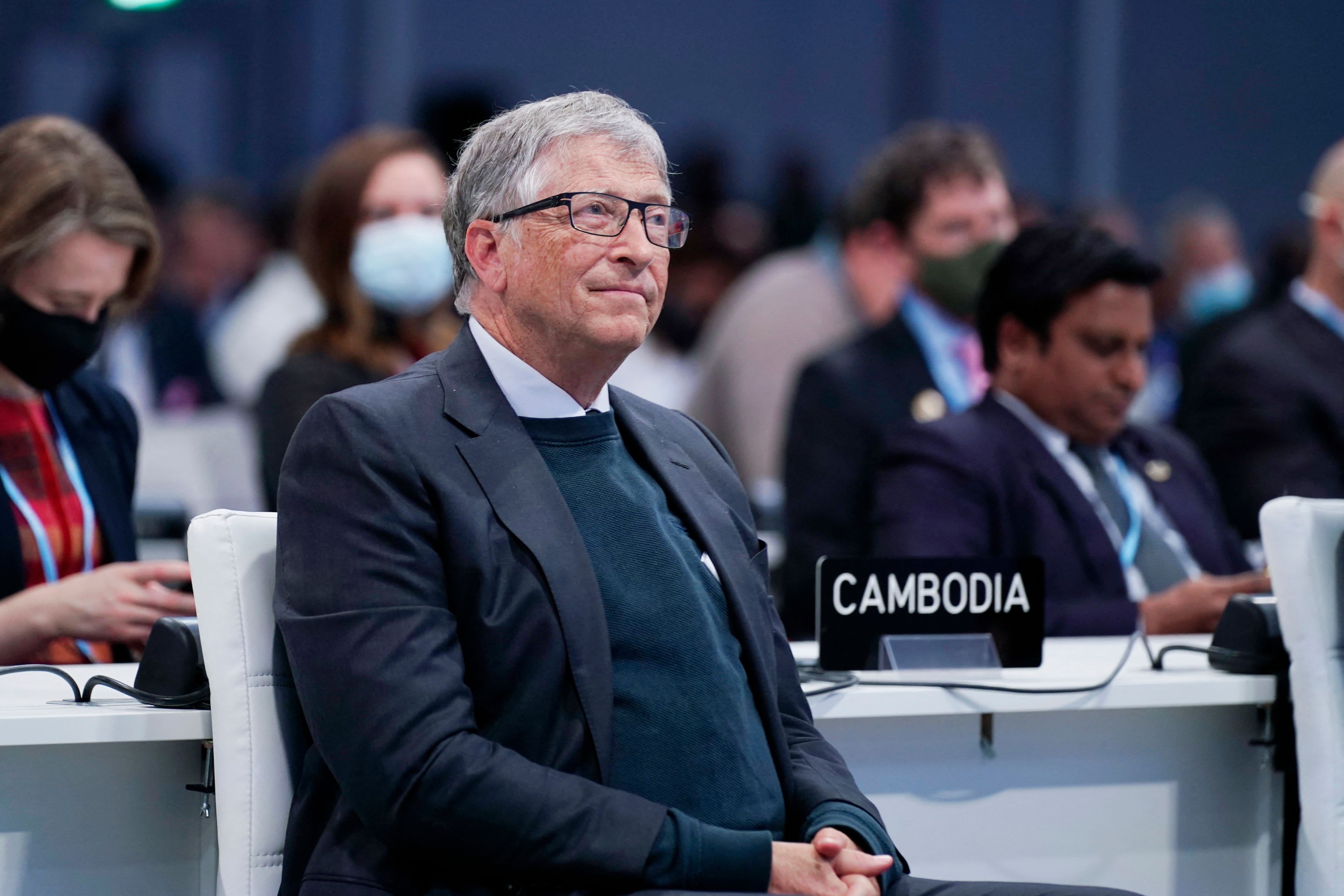Bill Gates doubts goal of limiting global warming to 1.5 degrees is achievable
Bill Gates photographed at the COP26 climate change summit in Glasgow, Scotland, on November 2, 2021.
EVAN VUCCI | AFP | Getty Images
LONDON — Bill Gates appears to have cast doubt on whether the world will be able to keep global warming to 1.5 degrees Celsius, providing a sobering reminder of how much work needs to be done if climate goals are to be met.
Gates’ comments on global warming, made during the first week of the COP26 climate change summit in Glasgow, are a reference to the Paris Agreement, which aims to “limit global warming to well below 2, preferably to 1.5 degrees Celsius, compared to pre-industrial levels.”
In an excerpt of his interview, which was conducted by U.K. lawmaker Jeremy Hunt for the think tank Policy Exchange, the billionaire seemed skeptical about whether the goal could be met.
“It’s all a matter of degrees, so to speak. That is, you know, hitting 2.5 is better than hitting 3, hitting 2 is better than hitting 2.5,” he said. “1.5 … will be very difficult, I doubt that we’ll be able to achieve that.”
The COP26 summit, delayed a year by the coronavirus pandemic, comes six years after the landmark Paris accord was signed by nearly 200 countries.
The 1.5 degrees Celsius threshold is a crucial global target because beyond this level, so-called tipping points become more likely. Tipping points refer to an irreversible change in the climate system, locking in further global warming.
The Microsoft co-founder also said there was “no comparable feat that mankind has ever achieved to what we need to do for climate change.”
Gates acknowledged that mankind was “much richer today, far more knowledgeable today — we do have the digital tools that enable us to work on these things.”
Expanding on his point, he said: “What happened with solar panels, where they were very expensive and now they’re cheap, or lithium ion batteries, we need to do that for about six other technologies.”
Namechecking green steel, cheap hydrogen and offshore wind, Gates said lots of money would be required and that there were “many paths of innovation.” This innovation would have to be rapid, he added.
Asked by Hunt on how the U.K. was dealing with climate issues, Gates offered praise. “The U.K., actually, is exemplary,” he said. “Coal started here and yet there’s periods of time when the coal emissions in the U.K. are zero.”
“I admit I was worried when they merged the climate department and the business department,” he went on to state. In 2016, the U.K. government combined the Department of Energy and Climate Change with the Department for Business, Innovation and Skills.
“I thought, OK, will climate get lost in that? In fact, the right thing happened, which is more business-oriented, analytical thinking came together with people who understood the climate.”
“And that, I think, is why the U.K. has made progress on this. No, the U.K. gets a very good grade on climate progress.”
—CNBC’s Sam Meredith contributed to this article.
For all the latest business News Click Here

